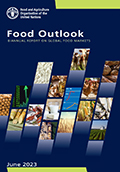Commodity in focus
Coffee is one of the most widely consumed beverages in the world and one of the most traded commodities globally. The largest coffee producing countries are Brazil, Viet Nam and Colombia, while the European Union and the United States of America are the largest consuming and importing markets globally. Coffee is a growing market due in part to increasing consumption in emerging economies and a stronger interest in specialty coffee and product innovations in developed countries. Despite the expansion of the sector, recurrent and detrimental market imbalances and asymmetric income distribution among market players can threaten the livelihood of millions of smallholder producers.
Takeaways:
| Coffee production is concentrated in countries with relatively low-income levels and accounts for a sizeable share of their export earnings. |
| The coffee market is characterized by recurrent supply-demand imbalances and asymmetric income distribution among actors in the value chain. |
| Key elements of uncertainty for the development of the coffee industry are the economic sustainability of bean production and the effects of climate change |
| Innovation and new technologies are crucial for the sector to become more productive and competitive in the beverages industry. |
Did you know?
- Among the tropical beverages coffee, cocoa and tea, trade in coffee makes up the largest part and has grown most rapidly since 2000.
- The bulk of coffee production takes place in the Southern hemisphere, while consumption occurs mostly in the Northern hemisphere.
- Coffee is exported at an early stage of the value chain, which means little value addition in the producing countries.
- Coffee can contribute to the achievement of the Sustainable Development Goals (SDGs) by generating income, creating rural employment and alleviating poverty.
- Coffee culture is growing rapidly throughout the world, with consumption expanding in importing and exporting countries.
- Coffee production is witnessing an increasing trend in the application of Climate Smart Agriculture (CSA) strategies.
- The interest in traceability and transparency is growing among consumers in line with their attention to product quality and origin.
Featured Resources
-
Food Outlook – Biannual Report on Global Food Markets
Published: June 2023
-
Changing the terms of women's engagement in cocoa and coffee supply chains
Published: June 2019
-
Published: January 2015






